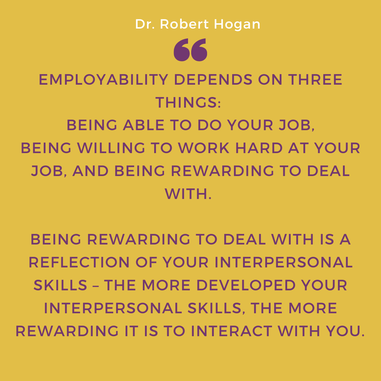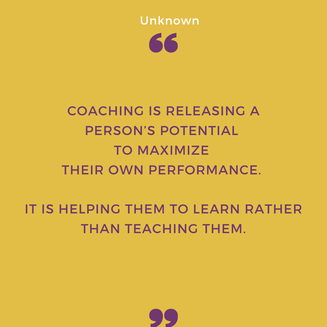LEADING ORGANIZATIONAL CHANGE FROM THE MIDDLE
Quite often in organizations, middle managers, often feel invisible, under-consulted and powerless. They are nonetheless a key driver in creating a positive healthy workplace. They represent one of the most critical factors in developing organizational commitment.
Unfortunately, over the past 10 years, organizational change has become unpredictable. We now live in a time of uncertainty where organizations are going through reorganizations, restructures, downsizings, mergers etc. in order to survive.
Whilst some businesses recognize the importance of developing human potential, and help middle managers adapt and develop the psychological and behavioral skills they need to lead, the efforts are somewhat insufficient.
Pre-planned solutions such as ‘useful tools and resources’ that are buried amongst a plethora of other equally important stuff on SharePoint, leadership development programs and e-learning modules are well intended however, they miss some critical elements.
Unfortunately, over the past 10 years, organizational change has become unpredictable. We now live in a time of uncertainty where organizations are going through reorganizations, restructures, downsizings, mergers etc. in order to survive.
Whilst some businesses recognize the importance of developing human potential, and help middle managers adapt and develop the psychological and behavioral skills they need to lead, the efforts are somewhat insufficient.
Pre-planned solutions such as ‘useful tools and resources’ that are buried amongst a plethora of other equally important stuff on SharePoint, leadership development programs and e-learning modules are well intended however, they miss some critical elements.
In my opinion, there are three key elements that added to more traditional formal/workplace learning initiatives, can allow middle managers to effectively lead from the middle.
- The first one is just-in-time learning that can be delivered with agile digital solutions. Instead of striving for a perfect product that can’t be deployed quickly, opt for ‘imperfect’ solutions that address current pain points. Use formats such as articles, interview podcasts, short SMEs videos, quizzes, micro-learning pods, polls etc. to target and make sure learning is accessible to all when needed.
- The second one is collaborative learning, or peer learning. It exists in different forms some people call it co-development, others will refer to it as action learning or group coaching. Getting people together to discuss issues and concerns, to question professional practices and assist each other in coming to their own conclusions and action plan by skillful questioning and sharing of experiences. This type of learning sits alongside networking and using collaborative tools (wikis, forums, blogs etc.) or planned learning experiences (business simulations, immersive experiences etc.).
- The third one is professional coaching to advance potential and to allow middle managers to manage themselves first and then support, influence, and inspire their team members.
Why is coaching essential for the development of middle managers?
Middle managers are feeling consistently stretched between the needs of the business, those of their staff and those of their hierarchy. They also have individual needs that often get pushed aside because of time and pressure. An all-inclusive way to address all of these needs is via professional coaching.
Recent studies have demonstrated that professional coaching has significant positive effects on 5 key areas (T Theeboom, A Van Vianen, B Beersma, 2014).These areas of impact are respectively, performance, well-being, coping, work attitude and self-regulation. Furthermore, these are key to develop and realize one’s potential, or in other words, the achievement of one’s most valued goals (Maslow, 1943) in life as well as at work.
Working with a middle manager, a professional coach will navigate through learning, change and growth with their clients through skillful conversations and goal setting.
Middle managers are feeling consistently stretched between the needs of the business, those of their staff and those of their hierarchy. They also have individual needs that often get pushed aside because of time and pressure. An all-inclusive way to address all of these needs is via professional coaching.
Recent studies have demonstrated that professional coaching has significant positive effects on 5 key areas (T Theeboom, A Van Vianen, B Beersma, 2014).These areas of impact are respectively, performance, well-being, coping, work attitude and self-regulation. Furthermore, these are key to develop and realize one’s potential, or in other words, the achievement of one’s most valued goals (Maslow, 1943) in life as well as at work.
Working with a middle manager, a professional coach will navigate through learning, change and growth with their clients through skillful conversations and goal setting.
|
The role of the coach while working with middle managers: In a professional coaching relationship, the goal of the coach is first to assist their clients reach a stage of metacognition. Once they are, aware of themselves, their thought process, their behaviors, their skills, their limitations, their reputation etc. then it becomes easier for them to influence their future and the future of the teams they manage. Daniel Goleman coined the term ‘Emotional Intelligence’ (Goleman, D.,2017) to perfectly describe heightened awareness of oneself, of others and management of oneself and others.
|
Secondly the coach is there to help the client develop strategies to set clear goals, and think critically in order to develops sustainable performance improvement and manage change effectively. Coaching helps the leader develop a solution-focused thinking approach that will enhance his ability to manage and deal with change.
Beyond the acquisition of knowledge, skills and attitudes needed to perform in role, coaching adds an extra layer. By a skillful questioning and feedback loop the coach acts as a sounding board to develop a leader’s potential. Beyond the individual being coached and developing self-efficacy, targeted coaching will help leaders build high performing teams of motivated individuals.
Beyond the acquisition of knowledge, skills and attitudes needed to perform in role, coaching adds an extra layer. By a skillful questioning and feedback loop the coach acts as a sounding board to develop a leader’s potential. Beyond the individual being coached and developing self-efficacy, targeted coaching will help leaders build high performing teams of motivated individuals.
Why developing human potential via coaching?
Developing potential in this current business context is so important because the number one retainer for employees is development opportunities, not money. Employees want to be prepared to step-up and bounce back if something like what we are facing today, comes up again in the near future. Recruiting talented individuals is hard, retaining them needs efforts, intention, diligence and discipline.
Professional coaching is not only a way of up-skilling a middle manager, it’s also a proven way to develop a learning culture that will lead to business performance.
Through the process goal setting and systematically implementing actions to reach them the leader demonstrates continuous learning. Through critically looking at the setbacks and being supported, the leader becomes better equipped at dealing with stressors, and thus develops resilience. These key attitudes have important implications when going through organizational change. They are essential components of building high performing teams and driving engagement.
The impact of leadership coaching goes beyond the individual leader, it affects teams and the organization as a whole. A recent study (Dr Sean Oconnor,PHD, 2014) reveals that coaching has a ripple effect and that changes in leaders influence the experience of employees and leads to better wellbeing in the workplace.
Professional coaching is not only a way of up-skilling a middle manager, it’s also a proven way to develop a learning culture that will lead to business performance.
Through the process goal setting and systematically implementing actions to reach them the leader demonstrates continuous learning. Through critically looking at the setbacks and being supported, the leader becomes better equipped at dealing with stressors, and thus develops resilience. These key attitudes have important implications when going through organizational change. They are essential components of building high performing teams and driving engagement.
The impact of leadership coaching goes beyond the individual leader, it affects teams and the organization as a whole. A recent study (Dr Sean Oconnor,PHD, 2014) reveals that coaching has a ripple effect and that changes in leaders influence the experience of employees and leads to better wellbeing in the workplace.
In conclusion
Middle managers are the ones who have the most direct reports, hence the most influence on business goals and objectives. As we’ve seen the benefits of coaching are multifold and go far beyond the individual being coached.
Professional coaching for middle managers has the potential to positively impact organizational wellbeing, build both career and personal resilience, support teams through organizational change, build engagement, retain and develop talent and lead to business success.
Professional coaching for middle managers has the potential to positively impact organizational wellbeing, build both career and personal resilience, support teams through organizational change, build engagement, retain and develop talent and lead to business success.




